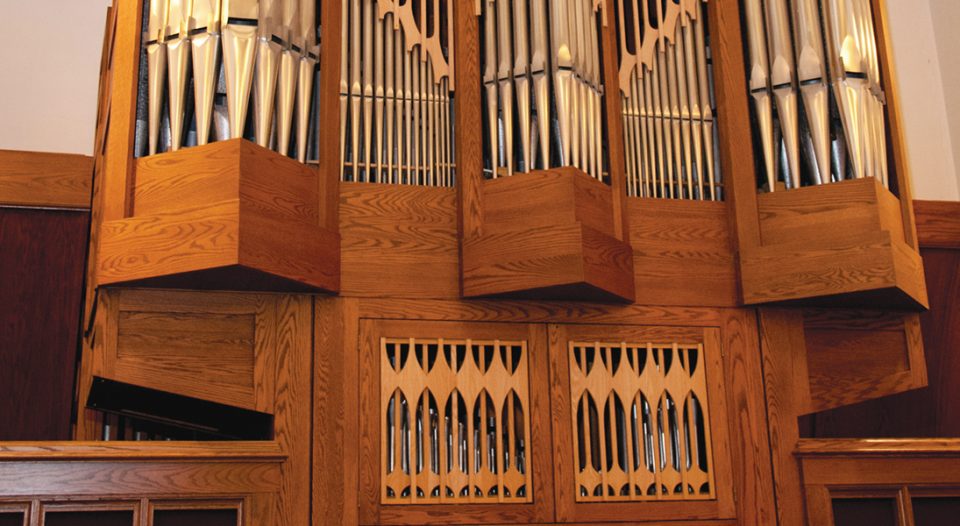Music is central to Lutheran worship. For centuries the pipe organ has been the instrument of choice to lead choirs and congregations in praising God through music.
How does the pipe organ endure over such alternatives as electronic instruments? Sound quality and longevity are the two principal factors. When faced with the challenge of replacing their pipe organ in a sustainable manner, the following congregations also found doing so was surprisingly affordable.
Recycle, upcycle: Buying used
Community of Christ Lutheran, Whitehouse, Ohio, had a 25-year-old Rodgers electronic organ that needed speaker upgrades to keep up with congregational growth.
Eventually plans to build a larger sanctuary included replacing the Rodgers. Pam Davis, the congregation’s music director, considered a variety of pipe organs, electronic organs and electronic hybrids with wind-driven pipes in the bass to complement digitally sampled sounds. In the end, Davis said they “settled on a pipe organ mainly for longevity. If you maintain it, a pipe organ will last an incredibly long time.”
The Reuter Organ Co., Lawrence, Kan., suggested a used instrument. That option ended up being the right choice for Community of Christ. Members purchased a 1985 18-rank Reuter pipe organ from a Baptist congregation in Oklahoma, which Reuter moved to Ohio and reinstalled in the new sanctuary, with some modifications.
Davis said there was concern in the congregation over cost, but the final price of the upcycled Reuter, which cost $219,000 to move, reinstall and upgrade in 2008, was half of what a new pipe organ of the same size would have been. They financed the organ by adding it to their building loan. “The bank looked upon that favorably as collateral,” Davis said.
Once they heard how the organ enhanced congregational singing, some skeptics were appeased, Davis said. “I’ve had people say that it’s so much easier to sing to this instrument,” she added. “It makes the choir sound much better. It enhances everything we do.”
New organ, old pipes
Emanuel Lutheran Church in Pleasantville, N.Y., had a 20-rank pipe organ installed in the 1970s that was quickly failing due to design and installation issues. The congregation had six to 12 months to source an alternative.
For Michael Brittenback, now retired as minister of music, there were other issues. “The softer stops couldn’t support the choir but the louder stops obliterated the choir,” he said. “It had a very unsatisfying and almost grating sound, like playing an orchestra of piccolos. Rows of pipes were not sounding. It was a mess.”
They considered an Allen electronic hybrid but at $120,000, the congregation felt it was too expensive given the expected 20-year lifespan. In addition, “a digital organ is a fine recording of a pipe organ, but a recording is never as clear or present as the real thing,” Brittenback said. “An organ with 10 speakers cannot sound the same as 450 pipes because the pipes move much more air than speakers. You feel and hear the pipes and that’s what moves congregational singing.”
In the end, Emanuel selected Kegg Pipe Organ Builders, Hartville, Ohio, to build a new 9-rank pipe organ, citing sound quality and longevity as the main reasons for not going electronic. Kegg was able to reuse five ranks of pipes from the old organ. The total cost was $237,000 in 2013, and was financed by a fundraising campaign. Brittenback said the new instrument is four times more versatile than the old 20-rank organ because the builder was able to coax more work out of each rank of pipes, allowing him to do more with less when he played. “I lived with the organ for a year before I retired and I was still discovering new ways of using it,” he said.
Buyer beware
If your congregation is considering buying an organ, take time to hear instruments by the builders you are considering in spaces similar to your building. If you’re hiring a consultant, hear and investigate other installations by that person. Seeking a pipe organ? Audition your local builders and see what sort of magic they can make on a small budget.




